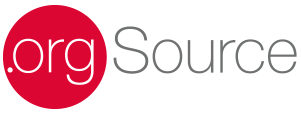Make Space—Lighten the Load for Your Heavy Lifters

Stuff is falling off your plate. You’re surrounded by a scary pile of responsibilities. You could delegate. But you don’t have the time to bring another staffer up to speed. Or you might hire new talent, but an opportunity to interview and onboard seems as elusive as a vacation day.
Unfortunately, this Catch 22 is standard operating procedure in some associations. Limited resources paired with outsized expectations can put the space to step back and take a breath in short supply.
On a recent Association 4.0 podcast, Sharon Rice, .orgSource Managing Director of Business Strategy and Jennifer Proctor, .orgSource consultant, explored the challenges involved with giving ourselves and our teams room to grow.
“When I began my career in associations, activities were more seasonal,” Sharon observed. “You knew work would be hectic preparing for the annual conference and during budgeting. But there was typically a lull at the close of those initiatives. That cyclical routine has largely disappeared. We’re not waiting to get over a hump anymore. We are on a continuous uphill climb. For some teams, the trek is more rigorous than for others.”
Focus on the Middle
In the organizational sandwich, the filling makes the difference between good and great. “Middle managers and directors are vital to bridging strategy and execution,” Sharon noted. “Their jobs depend on successfully leveraging teams and translating goals into tactics. They are crucial to ensure that work gets done.”
That position also makes middle managers especially vulnerable to burnout. Frequently, these staffers are employees who were promoted because they were good at details. Although they may have the least bandwidth, they also may have the greatest capacity to become leaders. To maximize that potential, it’s important to open space for newly acquired skills to grow and develop.
Assess Capacity
To begin expanding options, you must first realize that you’ve been painted into a corner. These are telltale signs that new paths to opportunity are desperately needed:

- Dreading going to work in the morning.
- Feeling overwhelmed before the day has begun.
- Over reacting to minor disturbances or problems.
- Irritability toward your colleagues.
- Disengaging with your team and/or your supervisors.
- Being passed over for promotions or new opportunities.
- Lack of fulfillment in your day-to-day activities.
Most of us would prefer not to be too familiar with the symptoms on this list. When even one or two people bring these emotions to work, that negativity has the potential to spread like a virus and to sicken your culture.
Lately, I’ve been focusing attention on strengthening the human side of technology and operations. When you give employees the capacity to do their jobs and to grow as professionals, that positive energy reflects throughout the organization.
How do you ensure that both you and your team can delegate effectively, and tasks are being performed by the right people? Sharon and Jennifer offered these strategies to lighten the load for the heavy lifters on your team.
Start Talking
“We can’t create change without support from our supervisors,” Jennifer advised. “Whether you report to an EVP or the executive director, there has to be a dialogue about the distribution of work and resources. This has the potential to be a challenging conversation. But if you present the problem as a plan and an opportunity for others to gain responsibility and experience that will benefit the organization, you are likely to find support.”
“Don’t overlook the value of connecting with your peers,” Jennifer said. “Learn where their strategy is taking them and what new projects are on their horizons. Determine whether others are struggling to keep pace and enlist their support. These conversations can give your space-making perspective and help you become more adept at redistributing the load.”
Empower Your Team

If you receive the green light to delegate responsibility, then it’s time to give your team license to help. “Sometimes we have to empower our staff to make decisions,” Jennifer said. “You don’t have to have a finger on the pulse of every activity. You need to encourage and embrace the group’s leadership skills.”
“We all have different comfort levels with what we want to know about our satellite responsibilities,” Sharon advised. “Of course, there are categories of information you are expected to have at the ready. But you don’t need total recall or to immediately answer every question. It’s perfectly acceptable to request time to assess the situation and report back.”
Check-In
At .orgSource, we find that keeping our clients up to date with weekly status reports makes it easier for everyone to feel confident about progress.
“As consultants we are disciplined about status reporting for our clients,” Sharon noted. “But status reporting also creates capacity for managers and directors. They can quickly review a bulleted list. The update doesn’t need to be extensive. It’s fine to provide just enough information so that everyone is aware of how initiatives are progressing. This simple activity opens space for both the creator and the reviewer. It’s a good way to put the week to bed.”
Cross-Out
“To add capacity, you may need to eliminate some activities,” Jennifer advised. Review the items on your to-do list. Are there sacred cows that need to be put out to pasture in order to add activities that will produce greater value? If the newsletter isn’t attracting subscribers or nobody’s listening to the webinar, use that time more effectively. I’ve never heard of an association that thought they made a mistake sun setting a program.”
“Circling back to our middle managers,” Sharon noted. “Because they have an intimate knowledge of products and services. They are in a unique position to identify activities that drain time, attention, and other resources away from strategic goals.”
Taking some of the weight off everyone’s shoulders allows that vision to expand. There are no benefits to a team that is so mired in tasks that they can’t see past the moment. When you give people time for reflection, evaluation, and creativity you develop a new crop of leaders. That professional fulfillment rises up and trickles down. It is a positive force that grows the organization’s capacity and enriches its culture in ways that are both advantageous and unexpected.
Sharon and Jennifer’s conversation explores these ideas in depth. The podcast airs on July 20, so stay tuned for more great advice. To learn how .orgSource helps our clients lighten the load for their heavy lifters, book time on my calendar to chat.

